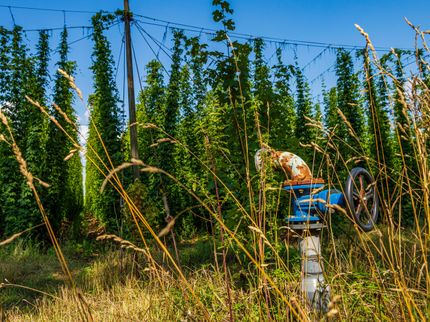More German breweries among the world's largest
Advertisement
Germany's largest breweries have done relatively well in an international comparison during the Corona crisis. In the new 2020 ranking of the world's largest hop merchant BarthHaas, eight German companies are among the world's 40 largest breweries. The year before, there were seven. No other country is represented so often in the top 40 ranking.

Bild von edjeloop auf Pixabay
Veltins makes it into the ranking for the first time, despite a drop in output, and ranks 40th. Taken together, the German brewers also fare a bit better than the 40 as a whole, with an average drop of 6 percent, according to the figures.
According to the list, the largest German beer producer is still the Oetker subsidiary Radeberger Group. In global terms, it climbs one place to 22nd, followed by TCB Beteiligungsgesellschaft, which includes Gilde Brauerei, Frankfurter Brauhaus and Feldschlößchen, in a stable 24th place. The Oettinger Group is ranked 25th, an increase of three places.
According to the figures, Oettinger is also the only one of the German breweries in the ranking to show a significant increase in output. Krombacher, the Bitburger brewery group and Paulaner follow in 31st to 33rd place. The Warsteiner Group drops one place to 39th with a significant drop in output.
"As you can see, the concentration process has raged among the large brewing groups over the past 15 years. That's the only way the small German brewers could slip into the rankings," Niklas Other, publisher of beverage trade magazine Inside, told Deutsche Presse-Agentur.
"Today, 3 million hectoliters are enough for 40th place. Fifteen years ago, you still had to weigh in at over 5 million," Other clarified the gap to the top. According to him, the small German beer market is not a good place for large brewing groups.
The four largest brewery groups in the world - AB Inbev, Heineken, Carlsberg and China Resources Snow Breweries - account for around half of global beer production, according to the analysis published in advance in the new BarthHaas report.
The German Brewers Association also points to the diversity of breweries and beers. "We are observing a progressive concentration of large brewing groups on the global market, while in Germany the number of private breweries increased year on year until the start of the Corona crisis," chief executive Holger Eichele told dpa.
The pandemic had hit the brewing industry hard. Not all consequences of the crisis are foreseeable yet. "Not until 2022 should something like normality be achieved again," Eichele stressed.
The concentration is taking place on an international level, said Veltins spokesman Ulrich Biene. In Germany, on the other hand, major takeovers have been going on for a while and are not in sight for the foreseeable future. This is due, among other things, to the strong position of regional beers.
From January to the end of April, the German brewing industry lost 2 million hectoliters, the volume of a medium-sized brewery, Biene points out. For the past three weeks, business has been picking up again, but this is initially a matter of restocking. "The brewing industry is not out of the woods yet."
How well breweries are getting through the Corona crisis also has to do with how strong their presence is in the restaurant business and at folk festivals. While those two areas suffered greatly from the pandemic, many breweries increased bottled beer sales.
However, this is not considered to be as lucrative as the draught beer business./ruc/DP/zb (dpa)
Note: This article has been translated using a computer system without human intervention. LUMITOS offers these automatic translations to present a wider range of current news. Since this article has been translated with automatic translation, it is possible that it contains errors in vocabulary, syntax or grammar. The original article in German can be found here.



























































